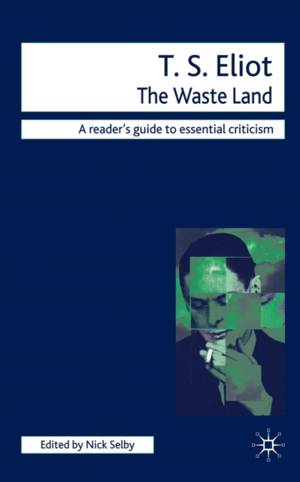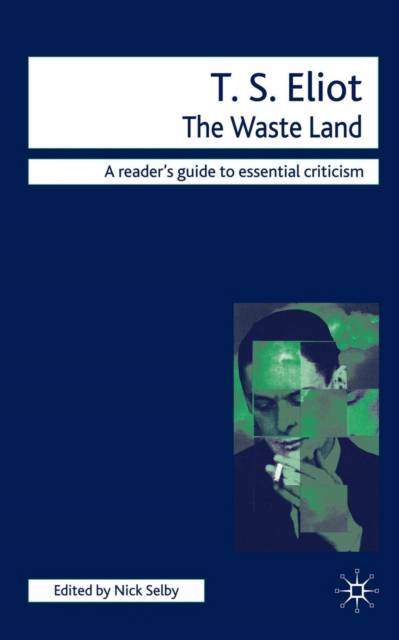
- Afhalen na 1 uur in een winkel met voorraad
- Gratis thuislevering in België vanaf € 30
- Ruim aanbod met 7 miljoen producten
- Afhalen na 1 uur in een winkel met voorraad
- Gratis thuislevering in België vanaf € 30
- Ruim aanbod met 7 miljoen producten
Zoeken
€ 29,45
+ 58 punten
Omschrijving
In this Readers' Guide, Nick Selby brings together some of the most important critical writings about The Waste Land and provides a clear discussion of their place within the development of critical theory from modernism to postmodernism. The Guide begins with early reviews and discussions from the 1920s and 30s, considered alongside Eliot's own critical essays, showing how he set the critical terms by which his poem has been read. Moving on to examine the ways in which the poem became accepted as a literary classic, the Guide then looks at 'New Critical' and 'Formalist' readings. The final chapters examine radical reassessments of the poem that have taken place in recent criticism, drawing upon 'deconstructive' readings that challenge The Waste Land's assumed cultural power by looking at it in the light of Marxist, feminist, psychoanalytical and cultural materialist reading practices.
Specificaties
Betrokkenen
- Auteur(s):
- Uitgeverij:
Inhoud
- Aantal bladzijden:
- 185
- Taal:
- Engels
- Reeks:
Eigenschappen
- Productcode (EAN):
- 9781840460391
- Verschijningsdatum:
- 1/04/1999
- Uitvoering:
- Paperback
- Formaat:
- Trade paperback (VS)
- Afmetingen:
- 127 mm x 203 mm
- Gewicht:
- 195 g

Alleen bij Standaard Boekhandel
+ 58 punten op je klantenkaart van Standaard Boekhandel
Beoordelingen
We publiceren alleen reviews die voldoen aan de voorwaarden voor reviews. Bekijk onze voorwaarden voor reviews.











